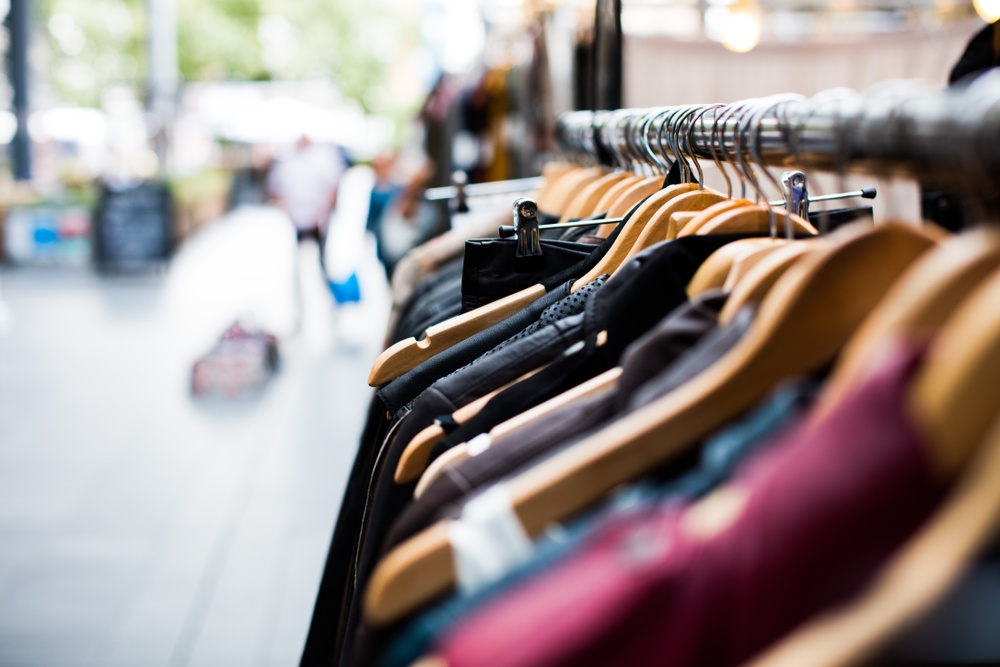One third of large clothing companies fail at sustainability reporting

The sustainability work of global fashion brands and retailers are not progressing fast enough, according to the annual Fashion Transparency Index report. Close to a third of the world's 250 largest clothing brands receive bottom ratings in this year’s survey.
“The clothing industry needs to take greater responsibility for the climate. It’s not acceptable that a third of the world's largest clothing brands hardly report any sustainability work at all”, said Anders Hülse, CEO of Fristads, a producer of functional workwear.
The Fashion Transparency Index examines how 250 of the world's largest clothing brands report on their sustainability work on environmental and human rights and grades the brands on a scale from 1 to 100.
The clothing brands that show most transparency in their reporting are Italian OVS, Kmart Australia and Target Australia, with a result of 78 percent share a first place. Runners up are Swedish H&M, The North Face and Timberland, all of which get a 66 percent rating. Close to a third, 73, of clothing brands end up at a bottom rating between 0-10 percent.
“I’m happy to see that our colleagues from the Swedish industry are recognized as positive examples. We can draw inspiration from each other and show the world that it’s possible to take greater responsibility”, said Anders Hülse.
The textile industry accounts for a total of 4–8 percent of the world's greenhouse gas emissions, out of which 80 percent occur in production. Despite this, only 29 percent of the companies surveyed have science-based climate goals that include both their own operations and subcontractors who produce the clothes.
“Climate change is the greatest challenge of our time, and it is not made easier by companies trying to hide their own climate impact. The industry would benefit from more companies reporting their climate impact from all parts of the operation”, said Anders Hülse.
This year's survey also revealed some positive news. In 2016, only 12.5 percent of the companies surveyed reported their subcontractors. In this year's survey, that number has risen to 48 percent. The more clothing brands that report who produce the clothes, the easier it will be to review and expose if human rights are violated during production.
Clothing brands with the highest results in this year’s survey:
|
Brand |
Result |
|
OVS, Kmart Australia, Target Australia |
78 |
|
H&M, The North Face, Timberland |
66 |
|
Vans |
65 |
|
United Colors of Benetton |
63 |
|
Gildan |
62 |
|
C&A, Gucci |
59 |
|
Puma |
58 |
|
Dressmann, Esprit |
57 |
|
Calvin Klein, Tommy Hilfiger, Ugg |
56 |
|
Calzedonia, Intimissimi, Tezenis |
54 |
About Fashion Transparency Index:
The Fashion Transparency Index is carried out by the organization Fashion Revolution. The survey is a measure of the transparency of clothing companies in their sustainability work. The survey has not examined sustainability claims from each clothing brand's public reports.
Fristads’ sustainability work has not been reviewed in the report. Read more about Fristads’ sustainability work here and download the latest sustainability report here.
About Fristads
Fristads has challenged and driven the development of durable and functional workwear since 1925, always with professional workers in mind and with innovation and sustainability as drivers. Our range of clothing includes classic as well as contemporary garments for a wide range of industries and our garments are made to meet the highest standards when it comes to quality, safety and comfort. Fristads is part of Hultafors Group, which is owned by Investment Latour AB and offers a broad portfolio of products and brands catering to professional craftsmen. Read more about Fristads at www.fristads.com.